If you are a lucky maybe your job is also your passion. And if you are very passionate about your job, you will look for a way to learn more, a day after the other, about your job, your work, your passion. And more, if you are very lucky you can share your passion with other fellow guys around the world.
And this is the story of a guy who found a way to learn more about the world and job he loved, and ended up creating a blog where, among other things, he asks people why they love what he loves…Sound!
After Tim Prebble, Andrew Spitz, Miguel Isaza, we asked a few questions to Hugo Verweij -Â the man behind the blog Everyday Listening – about his sonic inspirations. Here you are…
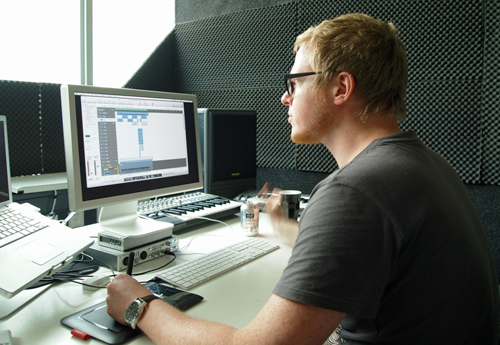
Hi Hugo, Everyday Listening is one of the leading voices of talking about sound on the web, and we’ve been following you since the beginning…on your blog you cover a lot of sound-related subjects, so tell us something more about you and your sound work in real life…
As a child I learned to play the cello, and during my teens my interest in music grew, I played a little guitar, I wrote some songs and I came to the conclusion going to the conservatory to solely focus on the cello wasn’t for me. But I also felt how music was fascinating me. So I found out about this Music Technology school, borrowed a four-track cassette recorder and wrote and recorded some songs for an audition.
The funny thing was, I really did not have any knowledge of technology at the time, or how it could be used to record and influence sound. It took me a year to save money to buy my first computer (an Apple Macintosh Performa 6400), a MIDI keyboard and an Akai S2000 sampler, and really get into the basics.
During my studies I switched from the focus on music production to sound design and long story short; I graduated for my Master of Arts degree with a computer game for blind children, consisting solely of sound. I created it together with two others (Sander Huiberts and Richard van Tol, currently working together as Creative Heroes), and due to the fact that it was the first game that really focused on giving blind kids the same immersive experience as their seeing friends could have while playing Need For Speed, the game was quite a big success.
At the moment I like to call myself a sound and music designer, although this title is subject to change. I never focus on just one side of the field, and the projects I do range from experimental electronic composition for contemporary dance to applied and functional sound design for instance for a touch-screen interface. And there is a lot in between those two. I am very inspired by the sounds I find around me, and also by the question how we can take sound into account while creating new environments, systems and interfaces. In my opinion there has to be an aesthetic chemistry between all sonic and visual elements.
I started Everyday Listening one and a half year ago not only to share inspiring projects I come across with the world, but also as a way for myself to keep inspired and motivated. There are so many things on my mind and there are so many interesting subjects in this world to read and write about, but sound is the thing I want to focus on, and having a blog like Everyday Listening helps me keep this focus. I don’t often write very long articles as I like to provide bit-size pieces for people to enjoy and think about. A format which works best on the web, in my opinion.
Let’s get to the point we love to discuss… we’ve started with Andrew Spitz, then Miguel Isaza, now I ask you the same question: what do you think of the fast-growing community of sound designers? What changes have you seen since you started your web journey with Everyday Listening? Do you think the interest in this field is growing – are we coming to a final definition of what sound design is – a web community bottom-up definition?
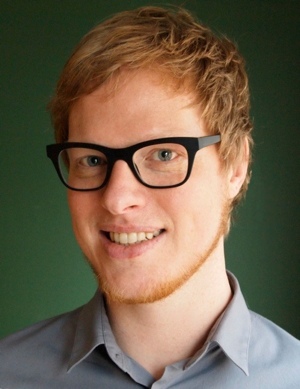
I operate in a different part of the sound design field than Andrew Spitz and Miguel Isaza, I think, as I am not really recording cars and footsteps for movies. I like creating field recordings, but then I use them as source material for a composition for instance, often creating a hybrid between acoustic and electronic sounds. In other words, my sounds don’t have to be ultra realistic most of the time. And when I am creating a sound concept for a graphical user interface I use electronically generated sounds.
That said, I do like reading about the use of sound in all kinds of settings, so it is good to have the many places on the web we have today to get inspired, among which the sites of Andrew and Miguel of course. It is good to see the people who operate in the field of sound express themselves and share their passion on the web. I do think though, there is still a lot of work to be done outside of this field to give the power of sound the awareness it deserves.
Everyday Listening has not yet been around for a long time, and in the beginning I was a little concerned about the amount of projects I would find. Would there be enough content to keep on blogging, to keep me inspired? During the first year I found out there actually is a lot going on all the time, and many artists and designers are working with sound in innovative ways! After some time people started to discover Everyday Listening and sending me their own projects or discoveries to be featured on the site, which is great.
Sound design didactics: at sounDesign we constantly deal with young students and young sound designers looking for a professional school or a CV that will help them to professionally work as sound professionals. You are a lecturer in Music Technology at the Utrecht School of the Arts: what would you suggest?
That is a good question. I am teaching in the Netherlands, not a very large country, and every year a lot of fresh graduates enter the market. What are all those people going to do? Not all of them will be able to keep working with sound. But if you really, really want to, I think there is always a way to do what you love. Be willing to take risks, look away from a job in a large company or studio, and combine things. If I look at myself, I teach, write, create, and there is not one of these things I would like to do without the others. It is the combination that keeps things fresh. Create your own profession.
Which technical instruments you use is not that important at all, as long as they help you realize your vision. What I see a lot with students is that they have a huge amount of tools (mostly software nowadays) but never really dive into them to find out what they are truly capable of. If you always keep on looking for new things, hoping that new microphone will make your work sound better, this will take up so much of your time you will not actually make anything. A good pair of ears to consciously listen with and being able to name what you hear, that is what’s important.
The five questions: that is a great project, that’s still going on. Can you give a sort of assessment of it? What do people say most about sound? Is there any sort of statistics, or anything you have noticed and want to share with us?
The questions I ask in this series are very personal, so the answers vary from person to person. I did not start the series to collect data and create an overview of the state of things. I really like reading the stories behind the sounds, and how they provoke different memories from person to person.
That said, there are some similarities to point out; The question What sound from your childhood made the most impression on you is often answered in one of two ways: a person remembers a very soothing, comforting sound, that reminds of a happy and safe time, or the opposite, a sound that really frightened them.
People’s favorite sounds to wake up to are mostly natural, organic sounds, like the sound of the ocean or soft rain. Which is funny, as I think most of us wake up to the sound of some type of electronic alarm clock. Does this sound influence how we feel during the start of our day?

So…what are your plans for the future? Anything you want to say to the fellows of this growing and exciting community?
At the moment I am working on some new ideas for web- and sound-related projects, which you will surely hear about some time later. For Everyday Listening, I will keep asking people five questions about sound, I will keep finding inspiring projects, and I would like to extend that with more reviews and some in-depth articles now and then. I hope I can help create more awareness of sound in general. The name Everyday Listening comes from the idea of using the sounds we hear every day, in a more functional manner. The world has a lot to tell us, all we have to do is listen.
Thank you very much for asking me these questions, it is good to think of the answers, and I am honored to be part of this series!
- The Sound Outside – Podcast series with the authors - June 1, 2020
- From silence, listen to the future - April 13, 2020
- The Sound Outside – Listening to the world at Covid-19 Time - March 28, 2020


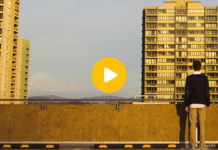
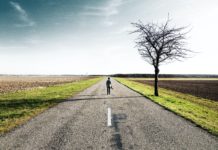
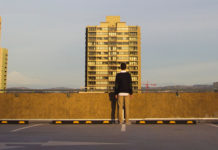
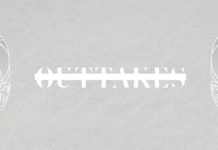

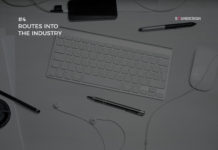
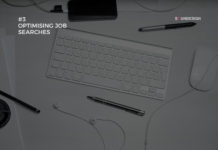
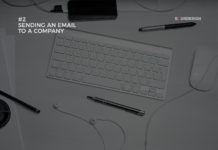
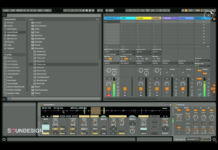
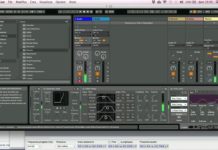

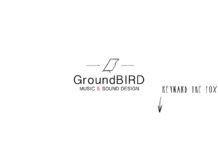
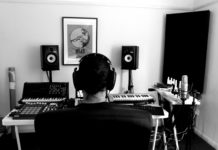
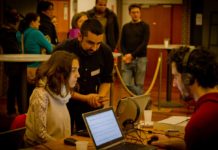
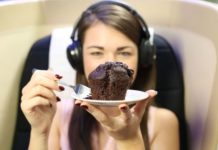
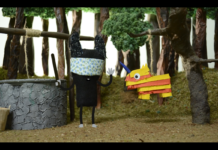
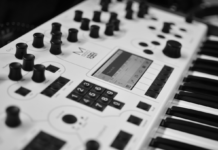
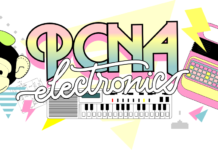
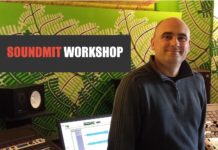
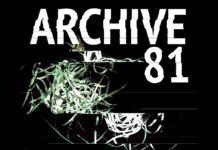
che sbocchi ha un Sound DEsign in italia oggi? e lui cosa fa nel suo paese? grazie
ciao Luca, come puoi notare, il nostro blog oramai è in inglese, a ogni modo ti rispondo in italiano: gli sbocchi del sound design in Italia sono pochi, in quanto non è una professione riconosciuta e la difficoltà per trovare un ambito lavorativo serio è molto alta. Come puoi leggere dalla sua intervista, Hugo lavora sia come sound designer, che come compositore musicale, se segui il suo blog noterai che si occupa anche di critica musicale.
A ogni modo ogni giorno verifichiamo che il vostro interesse verso gli sbocchi professionali è molto alto e stiamo cercando di approfondire questo aspetto proprio tramite le interviste ai vari professionisti
Great interview Hugo! I love when you say: “It is the combination that keeps things fresh. Create your own profession.” I totally agree.
Thank you Andrew! That really is the way I feel about things.